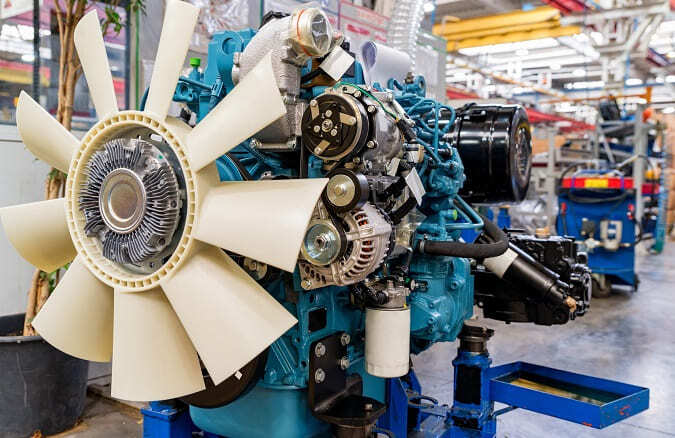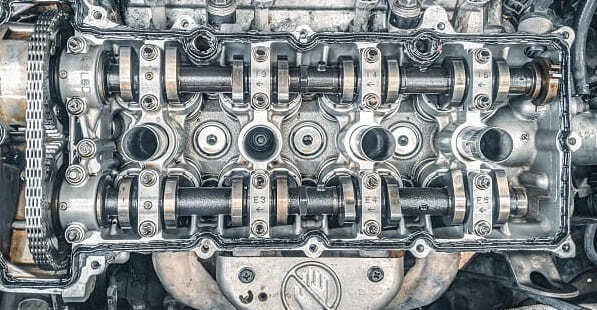
 Data Structure
Data Structure Networking
Networking RDBMS
RDBMS Operating System
Operating System Java
Java MS Excel
MS Excel iOS
iOS HTML
HTML CSS
CSS Android
Android Python
Python C Programming
C Programming C++
C++ C#
C# MongoDB
MongoDB MySQL
MySQL Javascript
Javascript PHP
PHPPhysics
Chemistry
Biology
Mathematics
English
Economics
Psychology
Social Studies
Fashion Studies
Legal Studies
- Selected Reading
- UPSC IAS Exams Notes
- Developer's Best Practices
- Questions and Answers
- Effective Resume Writing
- HR Interview Questions
- Computer Glossary
- Who is Who
What is the full form of CFI?
Introduction
Continuous Fuel Injection (CFI) is a type of current fuel injection system that is utilised in inner combustion engines. CFI systems provide the engine with fuel in a regular and accurate manner, in comparison to traditional carbureted engines. This technology allows for an extra efficient and managed combustion process, resulting in increased fuel economy, decreased emissions, and greater engine overall performance.

CFI systems are substantially employed in modern petrol and diesel engines and depend on advanced sensors and computer control to regulate the petrol injection rate and timing to optimise engine performance under numerous riding circumstances. Overall, CFI is a widespread technological advancement that enables current engines to run more smoothly and efficaciously at the same time as having a smaller negative environmental impact.
Working Principle
The continuous fuel injection (CFI) operating principle entails the constant and precise delivery of gasoline to the engine.
The fuel is supplied from a high-pressure fuel pump through a fuel rail to the fuel injectors. The fuel injectors are electronically managed valves that open and close at high frequencies, permitting fuel to be injected into the engine in precise amounts and at the proper time.
The amount of fuel injected into the engine is decided by the engine's computer, which monitors diverse sensors, inclusive of the throttle function, engine speed, air temperature, and pressure. The computer uses this information to calculate the finest fuel injection charge and timing, ensuring the engine runs efficiently and smoothly.
The fuel injection system is continuous and occurs during each cycle of the engine's operation, presenting an extra precise and managed combustion process in comparison to standard carbureted engines. As a result, CFI systems can supply higher fuel economy, reduced emissions, and improved engine performance.
The working principle of CFI involves the proper and continuous delivery of fuel to the engine, controlled by superior sensors and digital controls to optimise the engine's performance under varying driving conditions.
Advantages and Disadvantages
Here are some advantages and disadvantages of Continuous Fuel Injection (CFI) − Advantages −
Improved fuel performance − CFI systems deliver fuel to the engine extra precisely and efficiently, ensuing in an advanced fuel economic system compared to traditional carbureted engines.
Reduced emissions − the precise control of fuel injection in CFI systems leads to reduced emissions of dangerous pollutants along with carbon monoxide, hydrocarbons, and nitrogen oxides.
Higher engine performance − CFI structures deliver the right amount of fuel at the right time, main to advanced engine overall performance and acceleration.
Higher cold starting − CFI systems can supply a richer fuel aggregate during cold starts, improving engine starting and lowering engine wear.
Better reliability − CFI systems have fewer transferring parts than conventional carbureted engines, lowering the likelihood of mechanical failure and enhancing reliability.
Disadvantages −
Higher cost − CFI systems are extra complicated and expensive than traditional carbureted engines, increasing the overall cost of the vehicle.
Greater preservation − CFI systems require everyday protection to keep the fuel injectors and other components clean and functioning properly.
Increased complexity − CFI structures are greater complex than conventional carbureted engines, requiring extra advanced electronic controls and sensors, which can be extra tough to repair in case of failure.
Decreased energy at low speeds − CFI structures can also provide less strength at low speeds than traditional carbureted engines, which can affect the vehicle's drivability in certain conditions.
Accelerated sensitivity to fuel quality − CFI systems are more sensitive to the quality of fuel used, and using low-exceptional fuel can purpose problems along with engine knocking and reduced performance.
Comparison with Other Fuel Injection Systems
Here's a comparison of Continuous Fuel Injection (CFI) with other fuel injection systems −
Port fuel Injection (PFI) − PFI structures deliver fuel to the engine through injectors located in the intake manifold. Unlike CFI, PFI systems deliver fuel in short bursts at unique durations instead of continuously. PFI structures provide good fuel efficiency and engine performance, but they can be less specific than CFI systems due to the distance between the injectors and the engine.

Direct fuel Injection (DFI) − DFI systems deliver fuel at once into the engine cylinders, bypassing the intake manifold. DFI systems provide better fuel efficiency and engine performance than PFI and CFI structures due to the perfect fuel delivery and control. but, DFI systems are greater complex and expensive than PFI and CFI systems, and they require more preservation.
Carbureted Engines − Carbureted engines blend fuel and air in a chamber located in the intake manifold, delivering a combination of air and fuel to the engine. Carbureted engines are less unique and efficient than gas injection systems, resulting in decreased fuel economy and engine performance.
Conclusion
Continuous fuel injection (CFI) is a new fuel injection system used in internal combustion engines that supplies petrol to the engine continuously and uniquely. CFI systems outperform normal carbureted engines in terms of fuel economy, pollution, and overall engine performance. In order to maximise engine performance under a variety of riding circumstances, CFI relies on exact and continuous fuel flow to the engine, which is managed by cutting-edge sensors and computer controls.
FAQs
Q1. What is the difference between CFI and port fuel injection (PFI)?
Ans: CFI supplies fuel to the engine in a continuous and precise way, whereas PFI offers fuel in short bursts at specific intervals. CFI provides extra specific fuel management, leading to higher fuel economy and engine performance as compared to PFI.
Q2. How does CFI enhance engine performance?
Ans: CFI delivers the right quantity of fuel at the right time, leading to improved engine performance and acceleration. The precise management of fuel injection also reduces engine knocking and other performance issues.
Q3. Is CFI extra expensive than other fuel injection systems?
Ans: Yes, CFI systems are extra complex and highly-priced than conventional carbureted engines or PFI systems, which can increase the general price of the vehicle.

